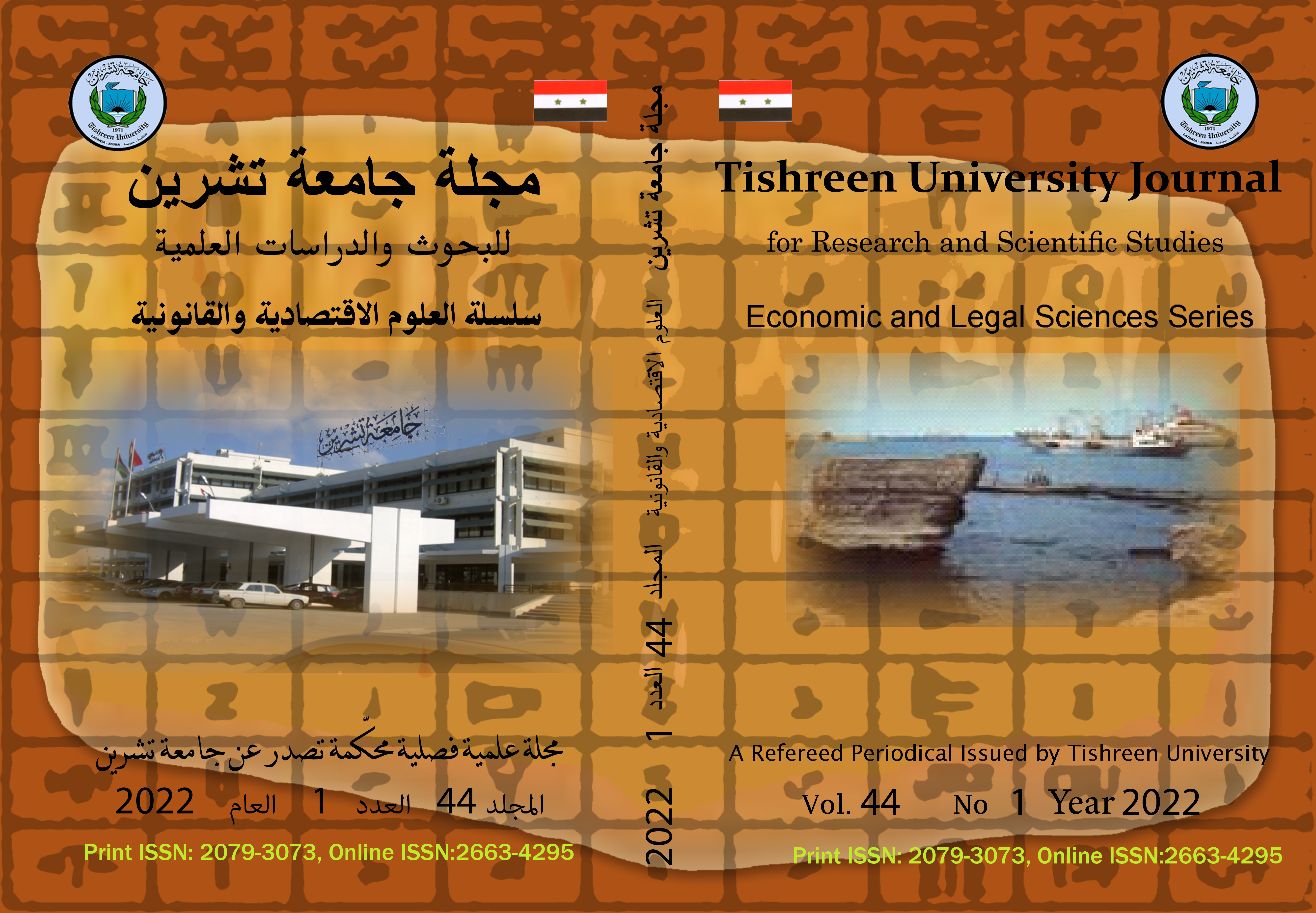The Extent of private Syrian Bank's Compliance with Audit Principals (A Fieldwork Study in Syria)
Abstract
This study aims to verify the extent of Syrian private banks ’commitment to implementing generally accepted internal auditing standards. Whereas, the absence of the internal audit role will negatively affect these banks and will have disastrous effects, as happened with many international banks, such as: (Société Générale Bank, Baring bank Union Bank of Switzerland, and others). The study relied on using the descriptive approach in order to describe the current status of the studied banks with regard to the extent of their application of these standards. Therefore, the study surveyed the opinions of a sample of managers and employees of the internal audit department in a number of Syrian private banks, who expressed their views regarding the extent of obstacles to the application of internal auditing standards and regarding the extent to which their banks apply internal auditing standards related to: (1- The characteristics of the internal auditor, which consist of Standards related to goals, authorities, and responsibilities, standards related to independence and objectivity, standards related to necessary professional skills and care, and standards related to the quality assurance and improvement program. 2- Performance of the internal auditor.
The hypotheses were tested using the T-test, and the results showed that Syrian private banks adhere to all recognized internal auditing standards, except for those related to quality assurance and improvement program.
Downloads
Published
How to Cite
Issue
Section
License

This work is licensed under a Creative Commons Attribution-NonCommercial-ShareAlike 4.0 International License.
-
The authors retain the copyright and grant the right to publish in the magazine for the first time with the transfer of the commercial right to Tishreen University Journal of Research and Scientific Studies - Economic and Legal Sciences
Under a CC BY- NC-SA 04 license that allows others to share the work with of the work's authorship and initial publication in this journal. Authors can use a copy of their articles in their scientific activity, and on their scientific websites, provided that the place of publication is indicted in Tishreen University Journal of Research and Scientific Studies - Economic and Legal Sciences . The Readers have the right to send, print and subscribe to the initial version of the article, and the title of Tishreen University Journal of Research and Scientific Studies - Economic and Legal Sciences Publisher
-
journal uses a CC BY-NC-SA license which mean
You are free to:
- Share — copy and redistribute the material in any medium or format
- Adapt — remix, transform, and build upon the material
- The licensor cannot revoke these freedoms as long as you follow the license terms.
-
Attribution — You must give appropriate credit, provide a link to the license, and indicate if changes were made. You may do so in any reasonable manner, but not in any way that suggests the licensor endorses you or your use.
-
NonCommercial — You may not use the material for commercial purposes.
-
ShareAlike — If you remix, transform, or build upon the material, you must distribute your contributions under the same license as the original.
- No additional restrictions — You may not apply legal terms or technological measures that legally restrict others from doing anything the license permits.

